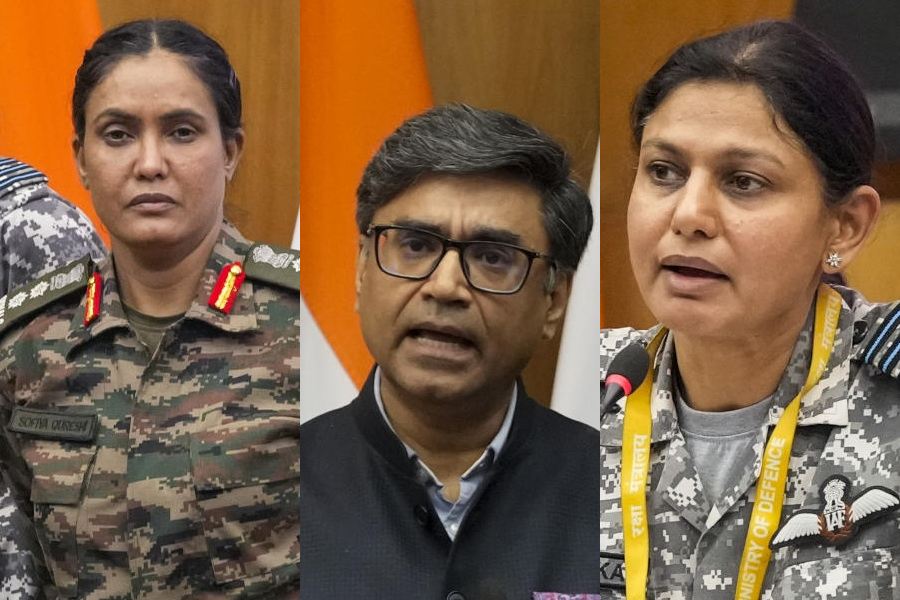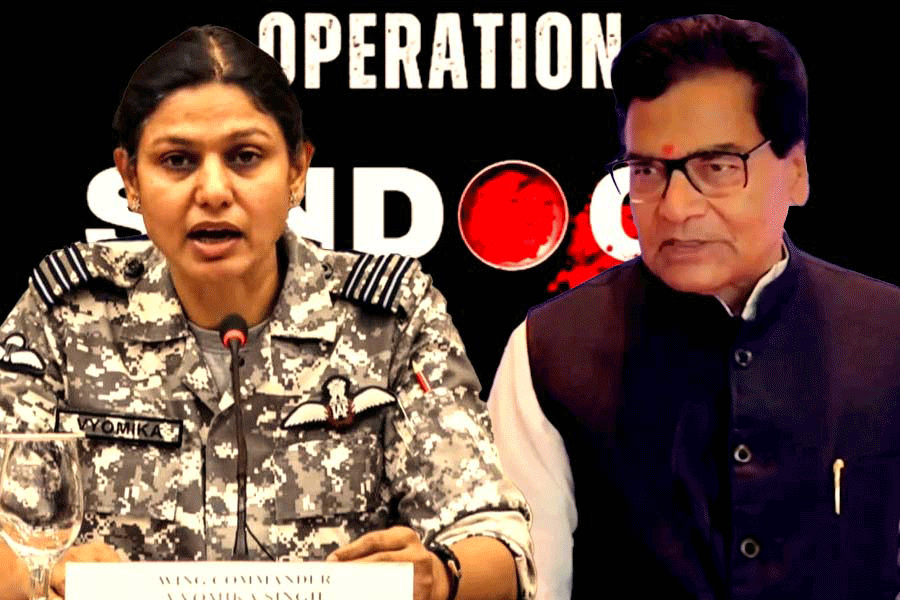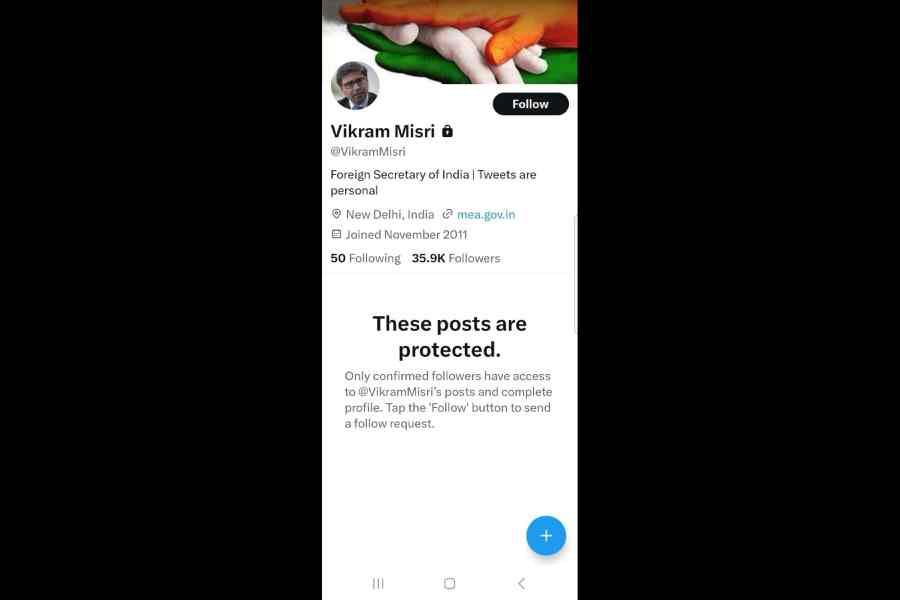It began with a bang, turned into a whimper.
When Colonel Sofia Qureshi of the Indian Army and Wing Commander Vyomika Singh of the Indian Air Force stepped forward to brief the nation after India’s predawn strikes across Pakistan and Pakistan-occupied Kashmir on May 7, the message was clear.
India wasn’t just responding to the Pahalgam massacre with force, it was doing so on its own terms. Two women officers, representing different faiths, stepped up as the public face of the armed forces.
Operation Sindoor’s symbolism was deliberate. The two officers represented more than retaliation. They represented India’s refusal to be split along the fault lines terrorists tried to exploit. Without saying a word about identity, their very presence was the answer.
The images went “viral”. Social media erupted with applause. Political leaders across the aisle showered praise. The military had spoken, and the nation listened.
For a brief moment, this country looked at them and saw strength. And then it unravelled.
On May 14, BJP MP Kunwar Vijay Shah, speaking near Indore, delivered a line soaked in communal and gendered undertones. He didn’t name Col Qureshi. He didn’t have to. “Jinhone humari betiyon ke sindoor ujade the… humne unhiki behen bhej kar ke unki aisi ki taisi karwayi,” he said.
The sweet taste of applause turned bitter. The officer who had stood for India was suddenly reduced to a stand-in for communal vengeance.The officer’s religion became a tool for political messaging.
A day later, Samajwadi Party MP Ram Gopal Yadav picked up where Shah left off. At a Moradabad party meet, he laid it all bare: “They didn’t even know who Vyomika Singh was or what her caste is, nor did they know about Air Marshal A.K. Bharti. Otherwise, they would’ve hurled abuses at them too.”
He continued: “Let me tell you — Vyomika Singh is a Jatav Chamar from Haryana, and Air Marshal A.K. Bharti is a Yadav from Purnia. All three were from the PDA segment. One was abused because they thought she was Muslim, one was thought to be Rajput, so nothing was said, and about the other, they have no information.”
From proud representatives of the armed forces, the officers were boxed into caste and religion.
Also standing behind the podium during Operation Sindoor was foreign secretary Vikram Misri.
He articulated India’s calibrated diplomatic stance, stating that the missile retaliation was “measured, non-escalatory and proportionate.” He debunked Pakistan’s propaganda point by point. On May 7, he detailed the targets. He answered every provocation with fact.
Three days later, after announcing a ceasefire between India and Pakistan, Misri became the target.
Misri didn’t negotiate the ceasefire. He announced it. But in a political climate that thrives on outrage, facts don’t matter. And Misri became the fall guy.
His X account went private — not because of state secrecy, but because an online mob decided he was a traitor.
Misri was accused of “surrendering.” Not for failing to act, but for saying what the government told him to say. Memes mocked him. Abuse poured in. But the rage didn’t stop with him.
His daughter’s number was leaked. Her profession was questioned. Her character was dissected by faceless accounts.
This wasn’t the first time the Internet turned on those who didn’t toe its line of vengeance. Himanshi Narwal, widow of Indian Navy officer Vinay Narwal killed in the Pahalgam attack, had said, “We don’t want hatred for anyone. We want peace. But we want justice too.” That was enough. Trolls mocked her grief. Her appearance was picked apart. Lipstick became a political statement.
The cycle was now familiar. The narrative starts with pride. It ends in vilification.
The cruel irony is this: Operation Sindoor was supposed to be a reply to those who tried to divide India on religious lines. Instead, it’s become a mirror showing how swiftly this country turns on its own.
And then came the quiet pivot.
Air Marshal A.K. Bharti took over the press briefings. The faces had changed. The message had changed. The women were gone. The diplomat was gone. The symbolism that had so powerfully confronted the communal violence of Pahalgam was quietly shelved.













